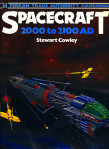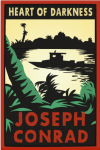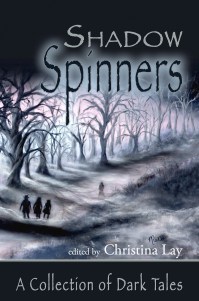Eric Witchey's Blog: Shared ShadowSpinners Blog , page 24
January 14, 2016
A Dose of Old-Fashioned Encouragement
By Cynthia Ray
Encouragement means to hearten, to instill courage. It is when someone sees the potential and promise in us that we are only dimly aware of, if at all and makes it known to us. It is surprising, inspiring and a gift. Encouragement comes from the French word, Coeur meaning heart.
On the other hand, the word motivation is derived from the Latin “motivus”, a moving cause-activating properties. Motivation is about engaging the mind and the will to get something done. Motivation is about a kick in the butt, encouragement is about opening someone’s eyes to their own potential. Motivation might get you to do something, but encouragement can change your life. I don’t know about you, but something about motivational quotes and posters makes me want to run screaming for the nearest door.
It is interesting to note that the use of the word encouragement has declined since the 1800’s, while the use of the word motivation has skyrocketed. A word that barely existed before 1900’s came into vogue as part of the study of psychology, and interest in what motivated the worker. Today we have careers dedicated to motivating others to “be the best they can be”.
I started thinking about the power of a few simple words of encouragement after I participated in a recent Facebook challenge. The challenge invited me to post my own nature photographs every day for seven days. The reception of and response to my photos surprised and encouraged me to consider things in a new way, to understand my creative “stamp”. This inspiring and contemplative experience showed me how others perceive something about me through the pictures I shared, that I had not considered or seen myself and gave me a push to expand beyond the preconceived borders I’d put on myself.

When I first started writing, the encouragement of seasoned authors and mentors was the spark that set me on a path that enriched and changed my life. That’s the thing about encouragement. It is life changing. We can do that for each other.
All we have to do is pay attention, and reach out. We may never know how our words and actions impact someone, but recently I ran into a young woman that I used to supervise in a doctors office. She’d had lots of potential and I worked with her to develop it. She told me how my belief in her and encouragement had led her to pursue a career as a physician’s assistant, which she had not had the confidence to do before that.
Young people, new and emerging artists, writers, visionaries need us to see the potential that lays dormant, and to reach out and affirm in them what they might know but be afraid to do or be so they can go on to change the world. Set off some sparks!

Tagged: creative process, encouragement, fear, human connection, motivation, writing


January 6, 2016
Our Relationship with Death
By the time we’ve reached middle age, we are no strangers to death. We have all lost pets, loved ones, family members, sometimes parents, spouses, siblings, aunts, uncles, grandparents, even close friends.
Death, as we have come to understand, is a part of life, and our own looms closer every day.
But it hasn’t always been so.

Teenagers tend to fancy themselves not only invincible but somehow ageless. They can never see themselves as fifty or sixty years old. It is only after years pass and we get a few gray hairs that we start looking forward to the day when we will be making hard decisions about the death of very close loved ones, and of course, ourselves.
So while there are milestones in everyone’s life, how often do we consider our aging process and our relationship to death—not only others’ deaths, but our own?
And what does this have to do with writing?
This has everything to do with writing, because it speaks to motivation of the characters.
I have long touted the book Linda Goodman’s Sun Signs for help with designing fictional characters. This big, fat book (available at all used bookstores) talks about a Taurus woman’s relationship with a Pisces mother or a Virgo father or a Capricorn spouse. There is gold to be mined here when it comes to human-to-human relationships.

But how do your characters relate to death?
How does your main character see him/herself when it comes to their own demise? The death of a child, a spouse, a parent? These are not necessarily things you need to put into your story or book, but as that character’s creator, you must know.
Most of us (women, in particular) have what I call Plan B, at least a sketchy plan of what we would do if our spouse should drop dead today. These are the thoughts that we harbor privately in the sleepless wee hours, and we alter them as time goes on. Along with these thoughts, we also mull over quietly how we would like to have our own deaths proceed, were we given the power to control them.
We all know people who say, with a cavalier wave, that when their health goes south, they’ll pull the chain. Take the black capsule. Go for a long nap in a snowbank. My father was one of those, yet he clung to life at the end. There are those who claim to have a bedrock relationship with their religion, yet they go crazy with grief when someone dies unexpectedly. Others think it will never happen to them, and are astonished when their 95-year-old father dies.
Some people just plain can’t get past grief. Others cruise through it so effortlessly (it appears) that other people find it suspicious. Others fear death to the extent that it stunts their experience of life.
And, of course, this relationship that we have with death changes every year we grow older, lose more friends, have more pains, spend more time and money at the doctors’ offices.
What is your main character’s relationship with death? How does that influence his/her actions?
Is it different from your relationship with death? How does your relationship with death influence your actions?
These are questions worth answering, as death is an integral part of life.
Tagged: death, Novel Writing, Short Story Writing, writing


December 30, 2015
What Are You Leaning Into for the New Year?

View as I write.
By Lisa Alber
Do you set goals for the New Year? I used to — very specific and unobtainable goals. Every next year was going to be the year I transformed into the best Me specimen I could imagine. Organized and non-procrastinating. Energetic and exercise-obsessed. Self-disciplined and prolific. Vegan (or at least vegetarian) and skinny.
What a losing proposition! Talk about a nice way to begin the New Year in self-sabotage mode.
Old habits die hard, however, so here I am thinking about 2016 and what I’d like to accomplish. As I write this post, I’m sitting at my kitchen counter. The Christmas cactus blooms have fallen, but it still looks festive in its red-foiled pot. The dog sits on my lap because she’s a little nervous about the dudes in my backyard who are cutting down a cedar that is rotted from the inside out.

Fawn “The Ears” Alber on my lap.
Symbolically, seems like a fitting way to end 2015. Not that 2015 was a rotten year — not at all! — just that even the most beautiful of things and times end. We move on whether we want to or not, just like that poor tree is coming down whether I like it or not. Change seems to come around faster the older I get, so I’m wondering what 2016 has in store for me …
Since I most emphatically do not set goals anymore, I’ve decided I’ll think in terms of what I’ll lean into for 2016. Have you heard that phrase before? Lean into? It seems to be the latest therapeutic craze. Go ahead, Google it. I see leaning into discomfort, leaning into pain, leaning into health, even leaning into stupid ideas. (I like that one.)
Some things I know I’ll accomplish in 2016: Writing because I’m under book deadline and responsible budgeting because I bought a house this year so I’m relatively house poor right now.
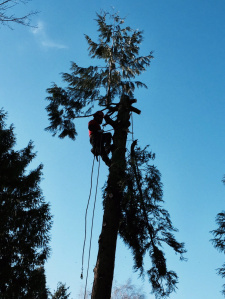
Waning cedar, waning 2015.
External stuff is pretty easy, but what about the internal stuff? That’s where I’ll need to lean into improvements. Semantically, I like saying I’m going to lean into improvements rather than set goals. Doesn’t the phrasing feel more warm and friendly, like it’s inviting you to try something new and fun? Like it’s opening you up to new possibilities?
It does to me. For example, my goal is to lose XX pounds and get in shape. As soon as I say that to myself, a sense of doom overcomes me. But if I say to myself, I’m going to lean into a healthier lifestyle and lose weight in the process. Well then … OK. That sounds pretty darned good to me. That’s what I want in my heart of hearts — a healthier lifestyle.
Setting goals is all about the finish line — you either make the finish line or you don’t. Black or white. Success or failure. On the other hand, leaning in implies a process of improvement rather than a state of perfection. As I learn over and over as a writer, it’s the process that counts. It’s about time I expand that notion into my life.
So, in addition to a healthier lifestyle, I’ve decided that I’m going to also lean into accepting non-perfection. Living in a world of many shades of gray (not to be confused with a certain pesky novel), rather than black and white. My therapist has a lot to say on this topic, hehe.
That’s it for my 2016 goal setting, and that feels good. Wishing you a leaning-into New Year!
What’s your take on setting goals? Do you do it? How does it work out for you?
Tagged: goals, leaning, New Years, Psychology, writing


December 23, 2015
The Mercy of Magic: Inspiration
by Christina Lay
My post this week is inspired by Matt Lowe’s article last week regarding the many inspirations for his story A Darkquick Sky. He got me to thinking about my story The Mercy of Magic. Both stories are included in ShadowSpinners: A Collection of Dark Tales. Both qualify as dark fiction, and I think it’s fair to say that both arose out of long, tangled love affairs with the fantastic.
My story is high fantasy, and its evolution is really the story of a novel and an entire world I’ve been crafting for several years
. The Mercy of Magic is one of those off-shoots which are so much fun to write once you’ve built a fictional universe in your head, populated it, built up buildings, torn down reality and let your imagination run amok.
Many winding, burrowing roots extend beneath the short story. I could talk about my grandmother’s escape from Czechoslovakia just ahead of Russian tanks. I could ruminate on the peccadillos of working in a Victorian House museum. I could mention my partner’s suicide and how it lead to the long dark winter when I took refuge deep in the comforting world of this fantastic universe emerging from my subconscious. I could laude the benefits of attending weekend getaways with other writers in which we all write a fantasy story in 24 hrs.
All those things laid the foundation, pushed and pulled me toward writing The Mercy of Magic. Even the words, Mercy and Magic, have great weight for me, and the dream of being saved, or at least guided, by a benign spiritual force resides deep in my psyche, even though I “know better”.
But truly, if I had to pick one trigger for this rather bizarre story, I’d have to say “Prague.”
The fictional world, the novel and the short story all sprang from a dream. My heritage is Czech, and as my mom and I discussed visiting the Czech Republic, I had a very vivid dream about wandering, lost, along the streets of a strange, obviously European city. When we finally made it to Prague and were wandering, lost, down a rather nondescript side street, I had an incredible sense of déjà vu. The reality of the city exactly matched the images from the long-ago dream.
As a writer, I can’t help but observe myself observing things. How American of me, I thought, how naïve and tourist-y, to lay any claim on this incredible city with its thousands of years of history, history which extends far beyond the picturesque steeples, imposing castle complex and quaint cobblestoned streets. There’s this rather looming presence in the Czech Republic called The Remains of Communism. Ugly utilitarian industry crowds the middle-aged jewel. And that sprawling, unlovely city is where most natives live and work. The heart of the city is a dream. A dream we all help maintain even while we pummel it to dust with our Nikes and our delusions.
This insight into my own longing for a mystical city to call home was the key to the workings behind the story. The shared dream we maintain, parallel to, beneath and entwined with reality. Thus was born “The Dark Side of Dreaming”, my epic fantasy novel. The epicenter is a medieval city lovingly maintained by a group of dreamers, down through the centuries, where magic and fantasy exist, invisible to the “real” world.
The Mercy of Magic takes place in The City, which is divided and dissected into worlds and realities of its own. The world of reason up in the castle, and down in the muck, the world of magic. Belief and non-belief, glory and horror, fear and hope. mercy and cruelty.
It’s a lot of weight to put on one little fantasy story, and I certainly never planned it. I started with a cool setting, a character’s whispering voice and an inkling of how we create reality through our individual perspective. Add to that a generous helping of Bohemophilia, a fascination with medieval history and the relentless pursuit of evidence to support my new-age theories of ancestral memory, and voila, a story appears.
Matt listed several fictional inspirations for A Darkquick Sky. I have to say most of my influences, beyond the groundbreaking fantasy works of Charles de Lint, are nonfiction. Or, maybe the nonfictional view of how we as a species create and maintain our stories. Below are a few of them.

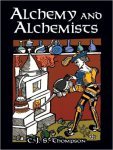

Tagged: A Collection of Dark Tales, creative process, creativity, fantasy, inspiration, Shadow Spinners, short stories, Short Story Writing, writing


December 16, 2015
A Darkquick Sky: Inspiration and Influences
If you trace the origins of any particular thought, idea, or feeling … or any work of art, you will find far reaching roots. The stories we tell have their origins in complex webs of experience and memory, as well as myriad conscious and subconscious inspirations and influences. To untangle that web completely is impossible, but we can peer into it and catch glimpses of at least some of the conscious raw materials of the creative process.
My story “A Darkquick Sky”, featured in the ShadowSpinners Anthology, A Collection of Dark Tales, is a science fiction horror story about the captain of an exploratory expedition that finds the remainder of a previous expedition marooned on an uncharted alien planet. It’s also about a man, far from his family, who is having an affair with a woman he works with.
When I set out to write this story, I was very conscious of wanting to write a somewhat hard science fiction story set among the distant stars. I wanted to portray space travel in a realistic but exciting way. And although I hand-waived faster than light travel, as even the hardest science fiction authors occasionally do, I wanted to get all the other physics and facts as right as I could. In this, my greatest inspirations were a lifelong love of science, the space program, the classic writers from the golden age of science fiction, and various stories of exploration. Some specific influences that come to mind are 2001: A Space Odyssey by Arthur C. Clark, Explorer by Douchan Gersi, Spacecraft 2000 to 2100 AD by Steward Cowley, and Endurance: Shackleton’s Incredible Voyage by Alfred Lansing, as well as the story of Magellan, the moon landing, and the lost Franklin Expedition to find the Northwest Passage.
I also wanted to explore the idea of alien contact, and specifically the idea that any meaningful communication or understanding may be impossible with any truly alien entity. I wanted to create an alien so strange in its form, thoughts, and motivations that it was incomprehensible to the human mind. And for this idea my greatest inspiration and influence was the incredible and mind-bending science fiction novel Solaris, by Stanislaw Lem. Of course, this is also a somewhat Lovecraftian theme, and I imagined the alien being as a kind of dark and terrible god in the minds of those it touches, an elder thing who reaches into your dreams, and whose strange thoughts drive human beings to unspeakable violence and madness.
Some of the horror elements were definitely influenced by a variety of zombie and vampire stories, as well as classics like Conrad’s Heart of Darkness and Melville’s Benito Cereno. But the dramatic situation of a small crew isolated in an utterly remote location, surrounded by a hostile environment, and faced with a terrifying alien entity, is directly influenced by two of my favorite science fiction horror movies, Ridley Scott’s Alien and John Carpenter’s The Thing, as well as the original story The Thing is based on, “Who Goes There” by John W. Campbell.
These are just a few of the external inspirations and influences that were running through my mind while I was writing A Darkquick Sky. The underlying story of the protagonist, Mahendra Singh, his lust for adventure and his romance with the stars comes from something much deeper inside. It is a story of hope, horror, disillusionment, and reconciliation, with inspirations and influences not as easily pulled apart and identified. They are rooted more in personal experience, and the life of any human being is infinitely complex, a web of thoughts, memories, and emotions that are impossible to know in their entirety. And even the big obvious influences on a person’s psyche may require a lifetime of introspection to understand. And perhaps we never will fully understand … perhaps the full nature of our existence, its meaning, and its ramifications, will forever be as strange and unintelligible to us as a distant world and a darkquick sky.


December 9, 2015
Writers Talk to Strangers, by Eric Witchey
 Photo Source: dzika_mrowka via iStockPhoto
Photo Source: dzika_mrowka via iStockPhoto
Writers Talk to Strangers by Eric Witchey
Recently, I wrote an essay in this space about a walk by hugging. Now, I’m writing about the value of talking to strangers. Over the years I have learned that other people’s stories mix with my own experiences to create the power behind my best fiction. The more I try to insulate myself, the flatter my fiction becomes.
How does that fit with our culture of “stranger danger?”
“Never talk to strangers,” my Mom said.
I was maybe four or five.
How many moms tell their children that? How many photos of people focused on newspapers, tablets, and cell phones have we seen? There they are, grouped together and not looking at each other on busses, trains, planes, and streets. In fact, we have so completely internalized this experience that when someone does look at us, we think something might be wrong with them—unless they are very attractive. Isn’t it odd, that their attractiveness makes any difference at all? Ah, but that’s a topic for another essay.
Many years ago, I attended the Writers of the Future seminars in Hollywood. I am forever grateful for that experience. While there, Tim Powers and Algis Budrys sent their students out onto Hollywood Boulevard on a quest to find a total stranger and interview them about their lives. The goal was to get more than the merely superficial, “Hi, how are you. What’s your name? Why are you in Hollywood?”
It did it. Luckily, I was perhaps more prepared to do it than some of my friends. My life at that point had included things like living under a bridge for a brief period, hustling for meals, selling crap door-to-door, schlepping 2x4s, too many drugs, living without food, hitchhiking across the country a couple of times, putting myself through college, and more. All of those experiences included the humility of seeking to connect to people I had never met in ways that would allow me to survive. So, I shook off the pesky film crew that had been sent to follow me around, and I found a well-dressed young man sitting at an outdoor café table reading the want ads. Beside him, he had the kind of well-worn, stuffed backpack that marked him as what we now call “homeless.”
When I was homeless, it wasn’t called that. It was called “transient.” I much prefer that term.
Anyway, the contrast of pack, clothing, and want ads told me he had a story. I asked to sit down, bought him a coke, and just listened. He had a story, which I won’t record here. Rather, I’ll just say that it was epic and heroic. From his story and my own experiences in life, I built a bit of fiction called “Wheel of Fortune.”
Though “Wheel” hasn’t appeared in print, I have actually sold the story twice.
So it goes.
Over the years, I have taken pleasure in the stories of strangers when I can. From them, I have generated a number of powerful tales. I listened to the tale of a man who painted a room for me. He was sixty-eight and had spent 40 years in prison for murder, an act he freely admitted to. I came to like him. That’s another story. The point is that I listened to him. I even transcribed some of his experiences from a journal he kept while living through prison riots. He was very grateful. His memories were, in his heart, his legacy. I agree.
I listened to the tale of a man who travelled the roads of America with his thumb out. He was on his way home to marry his pregnant girlfriend, a woman who had sent him out during her pregnancy to get his adventures in while he could. I have often wondered how their story turned out. She had some guts, and so did he. I admired her courage because she knew what he needed and sent him out to do it when others would have tried desperately to cling to him. I admired his because he was on his way back to her in a situation where lesser men would have just disappeared.
Wonderful stuff for fiction, there.
I listened to a recovering addict who had lost everything, meaning millions, to his ex-wife, lawyers, and bankruptcy. Like the murderer, he owned his actions and choices, and he loved his dog and his new, simpler life managing a trailer park.
Then, there was the man who wanted to create a railroad museum. He had hope even though he was dying. An old friend had given him a home as a night watchman at an abandoned industrial park. There, he dreamed of his museum while his health failed.
The list of hopes and dreams and lives goes on and on.
But sitting still, encouraging, and making a safe space in which another can tell their tale is not the only kind of listening a writer can make use of.
Yesterday, in a downpour that was something special if an Oregonian calls it a downpour, I was on the way to my bank. In the parking lot, I saw four women trying to change a tire. My first instinct was to offer help. That’s how my father trained me. I shook off dear old Dad.
I was in a hurry. After all, a computer crash and lines down had put me a week behind in my personal goals and responsibilities. I had this essay due at midnight. I had clients to serve. I had my own business to attend to in the bank. Their flat was none of my business, right? They should have bought better tires. They should have Triple A like me. They should… blah, blah, blah, selfish, egocentric blah.
Ah, thank God for Dad. His voice reminded me of the time I took shelter from a similar cold, winter downpour. I sat shaking under an interstate overpass in Wyoming curled up in a damp sleeping bag with my equally chilled and whimpering dog. A kind couple saw us, stopped, and gave us a ride all the way to Iowa. We were headed from Idaho to Ohio for Christmas. We took turns driving and sang Christmas carols. Nobody had a cell phone or a tablet to stare at.
At the very least, I could offer the unused umbrella I keep in the back of my car for when I go rain-soft and indulge my Midwestern self instead of manifesting my pride as an unbrellaless Oregonian.
The umbrella is a special, high-wind umbrella, and the winds were high. The women welcomed it in spite of the fact that they were Oregonians. Once I had handed it to the eldest of the four and mansplained how to hold it to take advantage of its special features, two of the women decided I wasn’t “strange.” The third, I suspect, only spoke Spanish. The fourth was busy with lug nuts.
Since they had relaxed a bit, I took a few breaths to check out the situation. They had two jacks, one lug wrench, and a soaked, working floor pad placed to protect their clothing. The flat tire rested solidly on the ground, and the youngest woman was trying her best to loosen the nuts.
I said, “Wow. You’ve done this before. You know what you’re doing.” For those who don’t understand how I knew this, it was because she was loosening the nuts before lifting the car. She was using the mass of the car to provide leverage. The young woman stopped, turned to me, made real eye contact for the first time, and said, “Yes.”
We had a short moment of silence, then she made a decision and said, “But I can’t get the nuts to break loose.”
“Can I try?”
She nodded.
We traded positions. The problem was that she had neither upper body strength to pull up nor the body mass to press down to break the lug nuts free. I had both—okay, well not really. I had the mass, but I didn’t tell the four women that. We’ll just keep it between us.
Once I had broken the nuts free, she loosened them up. I jacked up the car for them. Then, when I saw that they had the problem well under control, I left them with the umbrella and a couple of my tools and went to do my banking. When I came back out, I provided moral and physical support to their efforts until they were finished. All they needed from me was one tool and my body mass.
While I was driving away, the youngest woman, the one who so clearly knew what she was doing, graced me with a puzzled look. I smiled and waved and left. We never exchanged names. We never talked about anything other than her car. She and her friends will tell their version of the tale, which is, of course, different from mine.
On my end, I have new story material about the rain, the cold, the umbrella, and the fear of a stranger approaching. The story, when I write it, will include combined anxieties and reliefs. It will include surprises and uncertainties. It will include confusion and reconsideration of the whole idea of “Don’t talk to strangers.” The story will include kindness and, if I can figure out how, statistics about how truly safe we are and how community is interaction rather than homogenous reaction to perceived threats. If I’m lucky, I might even manage to generate a little hope by displaying how listening to people is sometimes paying attention to what they do and how they do it before interrupting them and showing them how they should do it. We’ll see.
The important bit for me was that I reminded myself that the walk-by-hugging had value. It reminded me to spread the joy and pay attention to the tiny, unconsidered fears that stop me from interacting.
Stories live all around us. Everyone has many. Over the years, I have learned that other people’s stories mix with my own experiences to create the power behind my best fiction. The more I try to insulate myself, the flatter my life, and my fiction, become.
-End-


December 3, 2015
Tradition by Cheryl Wilson
Tradition—Each year as December rolls around and my to do list looks like a papyrus scroll, a hand width deep, I question once again the many traditions I have continued over the years. Here are just a few—There is the baking of at least a dozen different delectable cookies and candies to be given to family and friends (I must insert here, without my daughter’s help this would have been whittled down many a year ago). Of course everyone on my shopping list receives a book, to take him or her into other worlds and peoples lives. Then there is the annual purchase of PJ’s searched specifically for each child and grandchild (Have I ever mentioned we have seven children plus spouses and significant others, and six grandchildren), that my friends, is a bundle of soft, fuzzy shopping. Now add in the stocking stuffers, individual presents, decorating, finding the perfect tree. Well, I’m certain you have your own to do lists and traditions to juggle. I must add a newer tradition of the past few years; one I’ve shared with friends who have grown children of their own. We now celebrate our “family” Christmas the weekend before the actual day. This way we get to have all of our family together without the “it’s the in-law’s year” or “the kids just want to stay home”. It is after all, about the joy of being together, isn’t it? I have friends who question my sanity, but when I hear our grandchildren or children enthusiastically discussing our family traditions, all of my weary hours fall away and I am enveloped in the warmth of love, sparkling eyes and laughter.
What you might ask does this have to do with writing? My answer is two-fold.
First, do your fictional characters have traditions they adhere to? Let’s say you have a person who grew up in a home with everything decorated for Christmas, right down to the red and white stripped, knitted cover on the toilet paper roll. What does it say about this character when they now won’t even have a small, decorated tree in their home? Tradition—we each have something we continue or discontinue from our childhood—so use it to create fascinating people to populate your stories.
Second, many years ago, I began writing a Christmas Poem to go along with our annual Christmas letter better known as “The Family Newspaper”. Again, while it’s very time consuming to not only create a poem and then write about each child—it’s a tradition now expected. I’ve shared this year’s poem below. What traditions have you maintained or let go?
Ho, Ho, Ho…
Help I am buried from the top of my head to the tip of my toes,
in shiny wrapping paper, scotch tape and curly red bows.
And our home once again, drips in twinkling white fairy lights.
While the Elf on the Shelf, is set to take his nightly flights.
Yes it is Christmas, that most glittering, magical time of year,
when my cup runneth over with glad tidings, and good cheer.
Who am I kidding? My home is a wreck and I’m a nervous mess!
There, it feels good to get that off my chest, and confess.
OK, now that we’ve gotten that out of the way,
let us look back to see what the year 2015 had to say.
The Supreme Court ruled “Marriage Equality for All”.
Now each state, must abide their legally binding call.
Finally Marijuana can be used in our fair state, without fear of incarceration,
now perhaps we will see all of its glorious benefits, in regard to medication.
Politicians, politicians, they are everywhere.
Spouting rhetoric filled with despair.
Is our government balanced and fair?
More importantly do they, still even care?
Perhaps we should look further, as into outer space,
where The New Horizon has shown us worlds, such as Pluto’s face.
Or we could follow the humane spirit of our Heisman trophy winner
Marcus Mariota, a man we’d surely love to have to dinner.
Oh I know there is much to discuss and to debate,
but I do not, and will not, ever give in to the division of hate.
After all, “The Force Will Awaken” this December to remind us all,
how light ultimately overcomes darkness, right before the fall.
Then there are those, to whom we must bid a fond adieu,
such as Mr. BB King. Yes “The Thrill is Gone”, without you.
And where oh where, will my nightly nightmares go to rest,
without Mr. Craven’s terror filled stories, to put them to the test?
Now I do hope Mr. Yogi Berra, is hitting them high,
cause, “it ain’t over till it’s over” in heaven’s cloudy sky.
Well my packages are all wrapped and piled as high as the tree,
and I’ve calmed my frantic nerves and am able to see more clearly.
What I see is that I am truly blessed beyond measure,
in the love of my family and friends; you are all my true treasure.
So I will leave you with these parting words from my now departed, Vulcan friend.
“Live Long And Prosper”—I bid you a Goodnight and The End.


November 25, 2015
The Beauty of Broken Things
By Cynthia Ray
Webster says a blessing is “something that helps you or brings you happiness.” What if we are lonely, or living in poverty, or addicted to drugs and alcohol, or facing foreclosure, or losing a job?
Do we expect life to be without pain or sorrow? Do we expect everything to go well all of the time? No, and yet we are always surprised by loss, pain and sorrow. We don’t expect it to happen to us or someone we love. It is always out there, happening somewhere else, to someone else; until it isn’t.
I have come to appreciate the shadows and the sorrows of life. All of the pain, suffering and brokenness in my life created a space in which I could do inner “alchemy” to become the person I am now.
I look at friends who have suffered with debilitating disease, with loss, with grief, and see them transformed by the experience, shining like a lantern to me, giving me hope and inspiration on my own path.
People that have struggled and experienced pain may become like the Phoenix that rises out of the ashes to become a new thing, a better thing than they would have been had they never suffered. In the middle of the fire, the burning is pain; in rising from the ashes as a new thing is victory. That victory then is a help and hope to those who are still burning.

If you are broken now, you know that you will become whole. If you are whole, you know you will become broken. And in that cycle of breaking and healing, we become more human. All of our stories are about the human experience, in all of its exquisite beauty and all of its horror.
If there was no sorrow, no conflict, no unhappiness, no war, no greed, no pain, there wouldn’t be any stories. Stories are always about the brokenness. I don’t know about you, but without stories, life would be shorn of much of its meaning and beauty. Stories show us the way.
Each of us hold a piece of the whole story, and when we tell that unique and special story, our voice adds to the symphony of voices singing, speaking, laughing and crying, weaving a fabric of humanness that keeps us connected.
Today, I am thankful for all of you writers and readers, for your stories, for your voice, for your unique “you-ness”. Know that the world would be less perfect and beautiful if you were not in it.


November 18, 2015
To collaborate or not to collaborate?
I’ve always eschewed the idea of collaboration.
To me, writing a novel is such an intimate process of soul searching that I could not imagine sharing that process with another person. I suspect I am not alone with that feeling.
But last March during the Wordcrafters conference, Nancy Holder and I talked about her collaborative endeavors with her writing partner, Debbie Viguie. Together they have written many bestselling novels and their partnership thrives, despite differences in… well, we’re all different.

I’m not going to tell you how they do it, because I only drilled deeply enough into that concept to allow me to give it some serious thought. I did find out this: They always write forward, they never go backward. In other words, when Nancy writes a chapter and then Debbie edits/rewrites it, Nancy uses that version to alter, never going back to a previous version. She may return to a previous concept or scene, but never a previous version. So they are always writing forward.
I found this to be very interesting.
I know many people who collaborate on many things. One friend has had great successes with multiple collaborations, but he has also had problems that have shelved, perhaps even killed, projects with great potential. Such is the lesson to have some type of agreement in writing with among collaborators. And it is also a lesson to be very careful with whom you entrust your fledgling projects.
So now, inspired by Nancy and Debbie’s intriguing arrangement, I’m collaborating.
I have a writing partner for whom I have tremendous respect. We have known each other only a few years, but I’ve kept an eye on him, his work ethic, the way he conducts himself in business and at home, and decided that he was the one for me, if he was interested.
He was.
But here’s the thing. I bring strengths and weaknesses to this partnership, and so does he. We discussed them in depth before embarking upon the first cooperative project. One of my strengths is that I am fortunate enough to have more time to write. He has less time. One of my weaknesses is that I am impatient. So when I finish something and pass it off to him, I need to relax and let his draft come back to me in the time that he has to devote to it. I gladly give up time for quality. And he brings quality.

We collaborated on an initial project of little consequence, mostly to see how we work together. A shakedown cruise, if you will. It went very well. Since then, we have completed two substantial projects, with two more—including a very ambitious one—in the works.
I am ecstatic. I am writing more now than I have in years, and am enthusiastic about my new work and all the possibilities now opening up to both of us. I eagerly anticipate his feedback and he knocks me out with the things he adds (and takes away), and is always willing to negotiate certain points that are important to one or the other of us, and find solutions to sticky issues.
This isn’t a mere collaboration. I view this as a long-term writing partnership, and I believe he does as well. In this particular instance, our work is way more than the sum of its parts; our synergy has lit us both on fire.
But this was no casual encounter, no off-the-cuff invitation to write something together. Before I approached him, I thought long and hard, and we talked about it in depth before we agreed to embark upon such a venture. It is much like any other business partnership that is heavy on the creative element. Trust is of paramount importance.
Even though I’m currently involved in what I consider a very successful collaboration, still, when I think of the word “collaboration,” I shudder. Collaboration is not for me.
Except when it is.
Tagged: collaboration, creative process, debbie viguie, editing, inspiration, nancy holder, partnership, rewriting, writing, writing partner


November 11, 2015
Childhood Terrors
By K. Ferrin
At the edge of a small town deep in the mining country of the upper peninsula of Michigan is a place called The Pits. At least that’s what everyone under four feet tall called it.
The Pits looked like two lakes on either side of an earthen road, cupped gently in the arms of two hillsides. Anyone from outside would look at the steep tree-lined hillsides and the steely grey water and find it beautiful. But those of us who lived there knew otherwise. They were not natural lakes, you see. At least not completely. They were the collapsed water filled remains of what is reported to have been the greatest iron mine in Michigan.
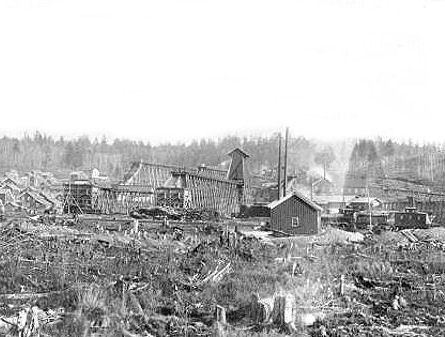
Everyone under four feet tall knew the dark history of the mines. 100s 1,000s 10,000s of miners gave their lives in service to the mine, and untold more died in the numerous collapses that eventually turned underground tunnels into the deep water filled pits that exist today. In 1940 it collapsed again taking a 150-foot section of heavily used roadway with it, killing no one at least a hundred people as it went.
None of the bodies were ever recovered.
The Pits, you see, were bottomless. No one had ever been able to determine their depths, though researchers tried for ages. The earth around them was pitted with miles and miles of abandoned and now underwater mines. And there were creatures that lived there. They were the reason children drowned in the Pits every year, and why their bodies were never recovered. We all knew someone who’d seen them, flitting shadows just below the surface of the water, or a glimpse of movement out of the corner of an eye. Mermaids, of a sort, but with mouths full of razor sharp teeth and a thirst for human flesh. Preferably those under four feet tall. That or ghosts. Also with a preference for eight year olds.
It turns out the history of the mines, for those of us over four feet tall, is not nearly as exciting. While almost certainly some miners lost their lives on the job, there is no history of these mines being any more dangerous than any others. By the time the mines began collapsing they had been long abandoned, and while one car did indeed plummet into the Pits when the road collapsed, there were no fatalities. There are still flooded tunnels beneath all that water, but The Pits are only about ninety feet deep. Not exactly fathomless.
But those stories stuck with me all these years, locked away in the vault of a writers’ mind, only to emerge decades later in the pages of a novel. Feral mermaid type creatures with mouths full of jagged teeth waiting for the fateful misstep of a careless sailor.
As adults we are terrified less by the monsters under the bed and more by the monsters that walk amongst us and seek to do us harm. But as writers, it is worth plumbing the depths of these childhood terrors for our writing. At some point the innocent and terrifying ‘what if’ of childhood is replaced with the adult certainty of ‘not real’. But deep down inside, all of us are still terrified of the dark unknown. Reaching back into stories from our childhood can help us tap into those things that most deeply frighten and disturb us. Excellent fodder, I think, for shady writers such as us.
Tagged: childhood fears, creative process, creativity, fear, ghost story, haunted places, horror, writing, Writing Dark Fiction


Shared ShadowSpinners Blog
- Eric Witchey's profile
- 51 followers



